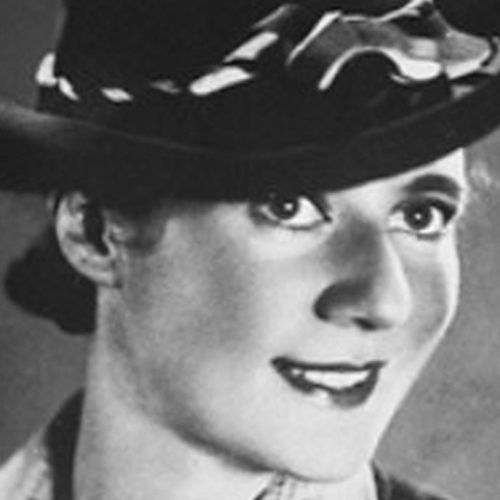
Roza Robata was a young Jewish woman imprisoned in Auschwitz who helped lead an audacious rebellion in 1944.
Born in Ciechanow, Poland in 1921, Roza was a leader in the Hashomer Hatzair Zionist youth movement. After Germany invaded Poland in 1939, the Zionist youth formed an underground resistance group to push back against Nazi persecution of the Jews.
Roza and her family were confined in the squalid, overcrowded Ciechanow Jewish ghetto for two years. In 1942, Roza and her family were arrested and transported by train to Auschwitz concentration camp. As soon as they arrived, Roza’s entire extended family was sent directly to the gas chambers, where they perished. Roza was assigned to a slave labor force. She created a network in the camp to disseminate news and information among prisoners.
Roza was assigned to the clothing depot next to the crematorium; her job was to organize the clothing of Jews who’d been murdered in the gas chamber. She was recruited by men she knew from her hometown to participate in a planned uprising. Roza played a crucial role in the resistance plan by smuggling gunpowder, which she got from women friends who were put to work in a munitions factory. Roza and three other women – Ala Gertner, Regina Safirsztajn, and Ester Wajsblum – managed to obtain, hide, and transport 1-3 teaspoons a day of gunpowder. They then handed the dangerous contraband to a Sonderkommando man named Wrobel. The Sonderkommando were Jewish death camp prisoners who were forced to dispose of the gassed bodies of their brethren.
Wrobel had an audacious plan to blow up the crematorium. For a year and a half, the small band of brave Jewish prisoners – both male and female – gathered explosives and hid them in a wagon used to transport dead bodies. They also fashioned small knives out of sardine cans.
On October 7, 1944, word got out that the Nazis were going to liquidate everybody in their part of the camp. It was now or never. At 3:00 pm, prisoners broke through the wires of the camp to reach the guard station. They disarmed a particularly sadistic guard, and threw him into the crematoria where he was burned alive, a fitting end for somebody who had tortured and killed thousands of Jews.
After killing that guard, the prisoners started attacking others. The guards counterattacked, shooting every prisoner they saw, whether they were involved in the revolt or not. Several Sonderkommandos rushed into the oven rooms with their stash of gunpowder, and carried out a suicide mission by detonating the explosives and blowing up the crematoria. Immediately, 200 other Sonderkommando men are forced to lie down outside the destroyed crematoria, where they were each shot in the head. Seventy SS guards and their kapo helpers were killed in the revolt, and 450 prisoners died when the mutiny was suppressed.
Several Sonderkommando were spared so they could be interrogated. Under extended torture, the men gave up names, including those of Roza and the three women who’d helped her smuggle gunpowder. The women also were tortured, but they gave up only the names of people who were already dead.
While Roza was in the torture bunker, Noah Zabludowicz, an old friend from the Zionist youth movement, managed to visit her there. Noah survived the war, and he later remembered, “I entered Roza’s cell. On the cold cement lay a figure like a heap of rags. At the sound of the door opening, she turned her face to me…Then she spoke her last words. She told me that she had not betrayed [anyone]. She wished to tell her comrades that they had nothing to fear. We must carry on. It was easier for her to die knowing that our actions would continue. It was a pity to lose one’s life and have to leave this world, but she did not regret her actions. She was not sorry that it was her lot to die. I received from her a note for the comrades outside. It was signed with the exhortation: Hazak ve-amatz (be strong and of good courage)! The time came to leave, and I left the bunker. This was the last time I saw Roza face to face, but I will never forget her.”
A scaffolding was built in front of the women’s area of the camp. On January 5, 1945, in front of thousands of prisoners, Roza and the other brave women resistors led to the scaffolds. As they walked to their deaths, they sang Hatikvah (The Hope), Israel’s haunting national anthem. Roza’s last words were the message she’d given Noah: “Be strong and brave!” She was 23 years old.
The hangings of Roza, Ala, Regina and Ester were the last public executions at Auschwitz. Just three weeks later, the Russian Army liberated the camp. Seventy-five years later, the brave Jewish women have not been forgotten. At Yad Vashem, a monument in the garden honors their courage and their sacrifice.
For refusing to go down without a fight, we honor Roza Robata, along with Ala Gertner, Regina Safirsztajn, and Ester Wajsblum, as this week’s Thursday Heroes.
Get the best of Accidental Talmudist in your inbox: sign up for our weekly newsletter.
Image: Ala Gertner